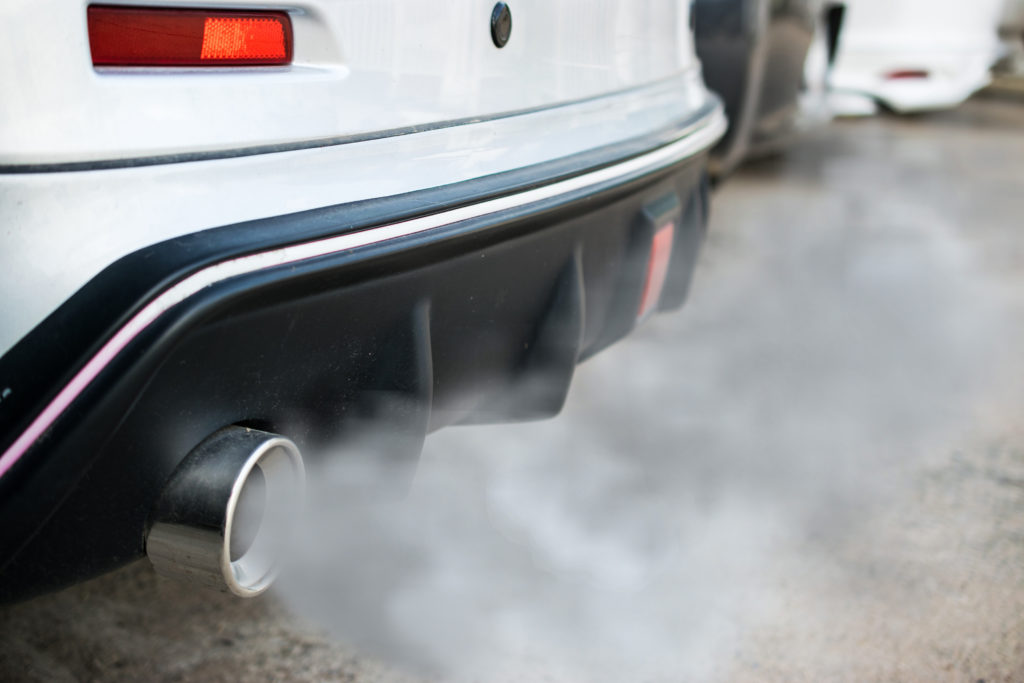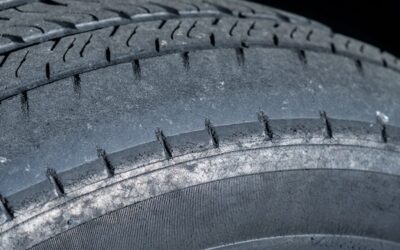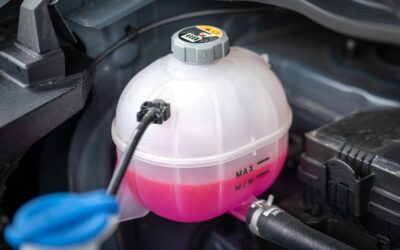A lot of the time, smoke from a car exhaust is nothing to worry about. It’s simply a by-product of burning fuel. Unless you drive an electric car, your car’s bound to produce a little smoke from time to time.
But it’s almost never a good sign when excessive amounts of coloured smoke billows from the back of cars. It often means that somethings gone wrong with your engine.

In this post, we’ll take a look at the various different types of smoke your car might produce, and the steps you should take in each case.
Black Smoke From Exhaust: What Does It Mean?
Black smoke from your exhaust might look alarming, like your engine’s actually caught fire. But a lot of the time, black smoke is nothing to worry about. And if something has gone wrong, it’s often an easy fix. It’s more common for diesel cars to produce black smoke.
Black Smoke from a Diesel Cal
Until very recently, it was perfectly natural to see black smoke rising from a diesel car’s exhaust. But since 2011, all diesel cars feature with a diesel particulate filter (DPF) as standard. These systems catch soot and other substances in the car’s emissions, which should lead to cleaner smoke.
What Causes Black Smoke?
So does it mean that something’s gone wrong if a diesel car’s producing black smoke? Not necessarily. You should expect the odd burst of black smoke when diesel passes through your engine without being completely burned, usually:
- When you first switch on the engine
- When you’re accelerating hard.
Yet if your diesel’s constantly producing black smoke, then something might be wrong. It might be a worn fuel injector. Or it might be a problem with your DPF. If it’s the latter, you should see a warning light on your dashboard. You’ll also notice a loss of power. In any case, constant black smoke from a diesel engine is a sign that it’s time to book your car in for a service.
Black Smoke from a Petrol Car
Similarly, with a petrol engine, an odd blast of black smoke might be expected – particularly if you drive a turbocharged car. But constant billows of black smoke are certainly a cause for concern. It might indicate a serious problem with your turbocharger, or with some other aspect of your engine. In any case, it’s a sure sign that it’s time to see a mechanic.
Blue Smoke From Exhaust
Blue smoke from your exhaust is a sign that your engine’s burning oil. Whether you drive a diesel or a petrol car, you’re bound to burn some oil from time to time. But you shouldn’t burn enough oil to produce any visible smoke.
So if you see blue smoke, or if you detect that distinctive burning oil smell, then you should get your car to a garage as soon as you can.
It could be a problem with your engine’s oil feed. Or it could be a result of natural wear-and-tear, allowing oil to leak into places where it’s not supposed to go. So depending on the severity of the problem, this could be a quick and easy fix. Or it might mean that you need a completely new engine.
Find out more about your engine oil.
White Smoke From Exhaust
If you think you see white smoke from your exhaust, pay attention. Make sure you’re not just seeing water vapour, the sort that all engines produce as they build to their operating temperature. If it’s cold outside, this water vapour might be a lot more visible than usual.
But thick and constant white smoke might indicate that there’s a problem. Once again, it might be:
- An issue with engine oil, in which case the white smoke might have a slight tinge of blue.
- Your engine’s burning coolant, if the white smoke’s particularly thick which could be caused by gasket failure.
White Smoke and Gasket Failure
This could be caused by a gasket failure. And if you see a constant stream of thick white smoke issuing from your exhaust, stop driving as soon as you can. Gaskets can fail suddenly, letting in a flow of coolant that can quickly become a torrent, resulting in significant engine damage. And of course, if your engine coolant isn’t working like it should, your engine can quickly overheat. This will cause even more damage.
So white smoke from your exhaust is perhaps the one to really look out for – the sign that something’s gone badly wrong with your engine. Unfortunately, it’s also the easiest to overlook, as you can easily mistake it for water vapour!
Keep on Top of Engine Problems
If you want to avoid ever having to see smoke of any colour billowing from your exhaust, the best thing you can do is to commit to regular servicing for your car, while ensuring that your engine’s oil and coolant levels are always at the optimum levels. For total peace of mind you can add breakdown cover to your car insurance when you get a quote.



